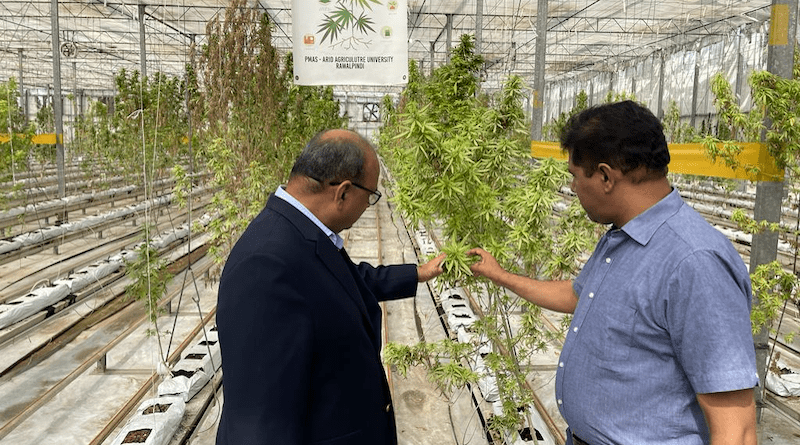The New Agricultural Revolution: Untapping Pakistan’s Green Potential – OpEd
By Sarah Saeed
Pakistan’s agricultural sector witnessed a tremendous boom as the Green Revolution in the 1960s brought along high-yield crop varieties, contemporary farming methods, and improved infrastructure were adopted, leading to a rise in agricultural production. Resultantly, Pakistan’s agricultural landscape experienced an enormous shift throughout the 1960s and 1970s and the country became self-sufficient in the production of wheat.
However, the Revolution’s initial achievement was not without obstacles. Chemical pesticides and fertilizers were heavily relied upon, which resulted in environmental damage, declining soil health and depletion of water supplies. Additionally, high input costs linked to modern agricultural practices were difficult for small-scale farmers to pay, escalating economic disparities.
In contemporary world, Pakistan’s agriculture sector is now considerably strained as a result of population inflation. Climate change has added unpredictability to weather patterns, increasing the frequency of floods and droughts that interfere with agricultural cycles that require ideal weather conditions to yield results. Furthermore, effects of traditional and outdated agricultural practices on the environment are becoming a source of concern.
Resultantly, experts such as policy planners in Pakistan strongly believe in introducing an agricultural model in the country that is sustainable, is capable of addressing these issues meanwhile improving production, protects natural resources and guarantees that future generations have access to food.In this regard, FonGrow – a modern and revolutionized partner that leverages agriculture through modern practices, has been taken on board by Pakistan’s Government and like-minded stakeholders to move ahead with Pakistan’s newly introduced Green Pakistan Initiative.
FonGrow seeks to implement technology to transform agricultural techniques and make them more efficient, inclusive, and sustainable. FonGrow is as a platform for sharing of data, linking farmers with agricultural professionals, researchers, and other farmers. To allow precision farming, FonGrow uses cutting-edge technology including artificial intelligence (AI) and drones.
Farmers are able to decide whether to irrigate their fields, fertilize their crops and use pesticides by gathering real-time data on the health of the soil, weather patterns and crop development. This information sharing stimulates the adoption of best practices and creates a community-driven problem-solving approach. FonGrow’s data-driven approach enables farmers to swiftly adjust to unanticipated problems brought by climate change. Due to the availability of cutting edge data based information, farmers may choose crop types that are more resistant to shifting climatic conditions by analyzing past climate data and forecasting models, maintaining a steady food supply in the face of difficulty.
FonGrow alsorecognizes the financial challenges faced by small-scale farmers and seeks to provide them with readily available financing choices by building partnerships with financial institutions. This in turn aims to enable smallholder farmers to invest in cutting-edge farming technologies and boost their output. Additionally, FonGrow rapidly promotes organic and environmentally friendly agricultural methods. In terms of crop quality, Fongrow’s unique practices will contribute in soil health restoration, biodiversity preservation, and risk mitigation by using less chemical inputs.
In Pakistan, the recently launched multi-faceted Green Pakistan Initiative presents a chance to transform the agriculture sector into one that is efficient, inclusive, and sustainable. As the Government aims for revolutionizing Pakistan’s agricultural sector, FonGrow has the potential to bring a new age of agricultural prosperity by providing farmers with real-time information, climate-resilient practices, and easy access to financing and has rightly assumed its role in ensuring economic uplift of the country.

